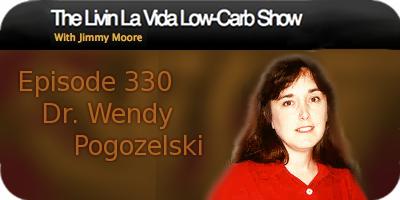Dr Wendy Pogozelski
Published on 22 Apr 2015
When Wendy Pogozelski began studying the primary literature in the field of nutrition, she was shocked to find enormous differences between the nutrition advice she’d found in the mainstream vs. the research and clinical results she was reading about. She connected with other researchers, doctors, biochemists and professors who had similar concerns and has become part of an international effort to help students, consumers and patients understand the science behind nutrition.
Dr. Wendy Pogozelski received her B.S. in Chemistry from Chatham University and her PhD from The John Hopkins University. She was an Office of Naval Research post-doctoral fellow at the Naval Research Lab in Washington, D.C. In 1996, she came to Geneseo where she now holds the rank of Distinguished Teaching Professor and serves as Chair of the Chemistry Department. In her laboratory work, Dr. Pogozelski and her students investigate the effects of radiation on mitochondria. Since developing an interest in the biochemistry of nutrition, Dr. Pogozelski has been working with an international group of scientists and clinicians who are trying to bridge the gulf between scientific research and nutrition education.
This is a similar history to the story Prof Richard Feinman tells, about how his knowledge of bio-chemistry, and what was taught to doctors and dietitians in nutrition classes were entirely different. The nutrition classes were not in any way based on well known science.
Prof. Wendy Pogozelski, Type One Diabetic
Professor Wendy Pogozelski
State University of New York, TEDx, April 2015
The Livin La Vida, Low-Carb Show, Podcast
Biochemistry Professor Wendy 'Dr. Pogo' Pogozelski
Smash the Fat
Sam Feltham, with Prof. Wendy Pogozelski
A high-fat, low-carb diet is not at all a starvation diet. You may find that for the first time in your life, you never feel hungry. It's the up-down, up-down, of the sugar spike created by eating carbohydrates, that makes us think that we're hungry.
 You'll hear "Dr. Pogo" talk about why she got extremely interested in biochemistry, what got her to study low-carb diets and then teach it to her students, her published paper on low-carb, her personal Type 1 diabetes diagnosis at the age of 40.
You'll hear "Dr. Pogo" talk about why she got extremely interested in biochemistry, what got her to study low-carb diets and then teach it to her students, her published paper on low-carb, her personal Type 1 diabetes diagnosis at the age of 40.
Many people don't know what a ![]() carbohydrate is. Sugar and bread, look very different, but in the body they both produce glucose. The sugar is immediate, the bread takes 30 minutes. For diabetics a slow rate of blood sugar rise is very important, but it's even better if that glucose spike can be avoided altogether.
carbohydrate is. Sugar and bread, look very different, but in the body they both produce glucose. The sugar is immediate, the bread takes 30 minutes. For diabetics a slow rate of blood sugar rise is very important, but it's even better if that glucose spike can be avoided altogether.
Her doctors told her to eat 130g of carbohydrate a day, as recommended by the American Diabetes Association. She understood why that recommendation was wrong.
There are many benefits of lowering carbohydrates in you diet, the first is weight control, the second is reduced inflammation, and increased protective HDL cholesterol. But for diabetics, eating very low carbohydrate means that your blood sugars are always quite low and the amount of insulin you need is tiny, so the potential for error is vastly reduced. 
Insulin is a hormone, it is the key that opens body cells walls so glucose can enter the cell. But if there is excess insulin, it also drives the conversion of glucose into fat.
High blood glucose reacts with proteins in the body. The reaction with red blood cells is particularly unfortunate, it makes them sticky and reduces the blood flow to the extremities of the body. That causes a lack of oxygen and cells struggle to get enough oxygen for respiration.
The difference between a ketogenic vs. a non-ketogenic diet, is that ONLY in ketosis are there enough ketones available, for your brain to switch metabolism and use ketones while conserve glucose which is now in short supply.
There are a barrage of bogus studies that come out lying about low-carb diets. Put on your thinking caps today because Dr. Wendy Pogozelski will give you a lot to ponder.
